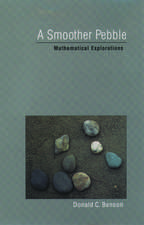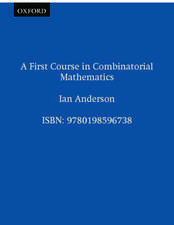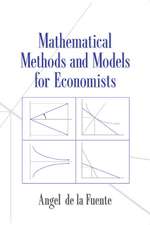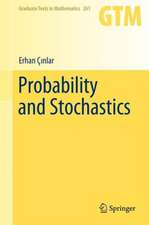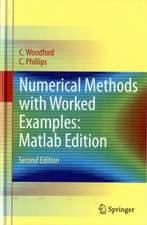Axiomatic Fuzzy Set Theory and Its Applications: Studies in Fuzziness and Soft Computing, cartea 244
Autor Xiaodong Liu, Witold Pedryczen Limba Engleză Paperback – 21 oct 2010
| Toate formatele și edițiile | Preț | Express |
|---|---|---|
| Paperback (1) | 955.56 lei 43-57 zile | |
| Springer Berlin, Heidelberg – 21 oct 2010 | 955.56 lei 43-57 zile | |
| Hardback (1) | 961.86 lei 43-57 zile | |
| Springer Berlin, Heidelberg – 7 apr 2009 | 961.86 lei 43-57 zile |
Din seria Studies in Fuzziness and Soft Computing
- 20%
 Preț: 999.85 lei
Preț: 999.85 lei - 20%
 Preț: 653.06 lei
Preț: 653.06 lei - 20%
 Preț: 872.96 lei
Preț: 872.96 lei - 20%
 Preț: 930.57 lei
Preț: 930.57 lei - 20%
 Preț: 1051.00 lei
Preț: 1051.00 lei - 20%
 Preț: 992.44 lei
Preț: 992.44 lei - 20%
 Preț: 655.85 lei
Preț: 655.85 lei - 20%
 Preț: 1001.86 lei
Preț: 1001.86 lei - 18%
 Preț: 954.14 lei
Preț: 954.14 lei - 20%
 Preț: 330.10 lei
Preț: 330.10 lei - 20%
 Preț: 333.04 lei
Preț: 333.04 lei - 20%
 Preț: 997.56 lei
Preț: 997.56 lei -
 Preț: 391.61 lei
Preț: 391.61 lei - 20%
 Preț: 647.79 lei
Preț: 647.79 lei - 20%
 Preț: 986.01 lei
Preț: 986.01 lei - 18%
 Preț: 958.56 lei
Preț: 958.56 lei - 20%
 Preț: 996.40 lei
Preț: 996.40 lei - 20%
 Preț: 999.35 lei
Preț: 999.35 lei - 15%
 Preț: 646.43 lei
Preț: 646.43 lei - 20%
 Preț: 651.57 lei
Preț: 651.57 lei - 20%
 Preț: 997.89 lei
Preț: 997.89 lei - 15%
 Preț: 641.03 lei
Preț: 641.03 lei - 20%
 Preț: 1009.74 lei
Preț: 1009.74 lei - 20%
 Preț: 992.62 lei
Preț: 992.62 lei -
 Preț: 388.72 lei
Preț: 388.72 lei - 18%
 Preț: 1223.43 lei
Preț: 1223.43 lei - 20%
 Preț: 651.42 lei
Preț: 651.42 lei - 18%
 Preț: 951.59 lei
Preț: 951.59 lei - 18%
 Preț: 948.61 lei
Preț: 948.61 lei
Preț: 955.56 lei
Preț vechi: 1165.32 lei
-18% Nou
Puncte Express: 1433
Preț estimativ în valută:
182.86€ • 189.83$ • 152.48£
182.86€ • 189.83$ • 152.48£
Carte tipărită la comandă
Livrare economică 24 martie-07 aprilie
Preluare comenzi: 021 569.72.76
Specificații
ISBN-13: 9783642101465
ISBN-10: 3642101461
Pagini: 532
Ilustrații: XVIII, 514 p.
Dimensiuni: 155 x 235 x 28 mm
Greutate: 0.74 kg
Ediția:Softcover reprint of hardcover 1st ed. 2009
Editura: Springer Berlin, Heidelberg
Colecția Springer
Seria Studies in Fuzziness and Soft Computing
Locul publicării:Berlin, Heidelberg, Germany
ISBN-10: 3642101461
Pagini: 532
Ilustrații: XVIII, 514 p.
Dimensiuni: 155 x 235 x 28 mm
Greutate: 0.74 kg
Ediția:Softcover reprint of hardcover 1st ed. 2009
Editura: Springer Berlin, Heidelberg
Colecția Springer
Seria Studies in Fuzziness and Soft Computing
Locul publicării:Berlin, Heidelberg, Germany
Public țintă
ResearchCuprins
Required Preliminary Mathematical Knowledge.- Fundamentals.- Lattices.- Methodology and Mathematical Framework of AFS Theory.- Boolean Matrices and Binary Relations.- AFS Logic, AFS Structure and Coherence Membership Functions.- AFS Algebras and Their Representations of Membership Degrees.- Applications of AFS Theory.- AFS Fuzzy Rough Sets.- AFS Topology and Its Applications.- AFS Formal Concept and AFS Fuzzy Formal Concept Analysis.- AFS Fuzzy Clustering Analysis.- AFS Fuzzy Classifiers.
Textul de pe ultima copertă
In the age of Machine Intelligence and computerized decision making, we have to deal with subjective imprecision inherently associated with human perception and described in natural language and uncertainty captured in the form of randomness. This treatise develops the fundamentals and methodology of Axiomatic Fuzzy Sets (AFS), in which fuzzy sets and probability are treated in a unified and coherent fashion. It offers an efficient framework that bridges real world problems with abstract constructs of mathematics and human interpretation capabilities cast in the setting of fuzzy sets.
In the self-contained volume, the reader is exposed to the AFS being treated not only as a rigorous mathematical theory but also as a flexible development methodology for the development of intelligent systems.
The way in which the theory is exposed helps reveal and stress linkages between the fundamentals and well-delineated and sound design practices of practical relevance. The algorithms being presented in a detailed manner are carefully illustrated through numeric examples available in the realm of design and analysis of information systems.
The material can be found equally advantageous to the readers involved in the theory and practice of fuzzy sets as well as those interested in mathematics, rough sets, granular computing, formal concept analysis, and the use of probabilistic methods.
In the self-contained volume, the reader is exposed to the AFS being treated not only as a rigorous mathematical theory but also as a flexible development methodology for the development of intelligent systems.
The way in which the theory is exposed helps reveal and stress linkages between the fundamentals and well-delineated and sound design practices of practical relevance. The algorithms being presented in a detailed manner are carefully illustrated through numeric examples available in the realm of design and analysis of information systems.
The material can be found equally advantageous to the readers involved in the theory and practice of fuzzy sets as well as those interested in mathematics, rough sets, granular computing, formal concept analysis, and the use of probabilistic methods.
Caracteristici
First comprehensive, authoritative and up-to-date publication on Axiomatic Fuzzy Set theory Covers detailed mathematical proofs and algorithms


